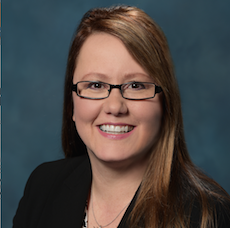
Those working in senior living put much thought and time into naming concepts and choosing words that will appeal to (and not offend) potential customers.
The most recent example of this effort is the Nov. 1 announcement of an initiative to replace the use of the term continuing care retirement community with life plan community, to get away from the words care and retirement. It’s also reflected in an industry preference for the friendly “community” instead of the institutional-sounding “facility,” memory care instead of dementia care, and other changes that have occurred other the years.
Those working in the field may have conflicting opinions as to the appropriateness of the evolving terminology, but it certainly makes good business sense to consider language and its effects on people. One term, however, seems to have escaped the scrutiny of well-meaning professionals: baby boomer.
In presentation after presentation at industry meetings, speakers warn that the baby boomers will have different expectations than members of previous generations and that senior living communities will need to adapt in order to attract them. After all, we’re told, the baby boomers were hippies, lovers of Beatles music, and war protesters.
There’s just one problem with this account: It doesn’t consider the fact that 18 years separate the oldest and youngest baby boomers. I’d wager that the wants and needs of the oldest members of the generation, who were born in 1946, differ greatly from the wants and needs of its youngest members, who were born in 1964.
Here’s a reality check:
- Many of the youngest baby boomers were not even born when President John F. Kennedy was assassinated on Nov. 22, 1963; when the Beatles appeared on the Ed Sullivan Show on Feb. 9, 1964; or when President Lyndon B. Johnson signed the Civil Rights Act into law on July 2, 1964.
- The youngest boomers were in kindergarten or pre-kindergarten when Woodstock occurred Aug. 15 to 18, 1969, and when the National Guard opened fire on students at Kent State University on May 4, 1970, killing four of them.
- The youngest baby boomers were 8 or 9 years old when U.S. combat units were withdrawn from Vietnam in 1973.
The oldest baby boomers, of course, are the more immediate concern for members of the senior living field, and their expectations will differ from those of previous generations. But the next time you’re about to utter the phrase baby boomer, stop and think about whom you’re really talking. Are you really referring to all baby boomers?
Maybe it’s time for us to try to devise a new way to refer to the oldest baby boomers. That way, we won’t be making generalizations about “baby boomers” that don’t apply to the youngest members of the generation, who may be children of your prospects now and may be looking for options for themselves some day.
I’m not sure what the answer is, but the good news is that when those in senior living solve that issue, they’ll be better prepared for the millennials, a generation that, like the baby boomers, is large and spans about 20 years.
Lois A. Bowers is senior editor of McKnight’s Senior Living. Follow her on Twitter at @Lois_Bowers.
From the February 01, 2016 Issue of McKnight's Senior Living



